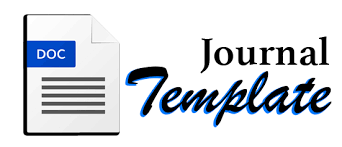Editorial Policies
The editorial policies of Indonesian Engagement Journal (InEJ) are designed to maintain the academic quality, transparency, and ethical integrity of the publication process. These policies guide the actions of the editorial board, reviewers, and authors in contributing to scholarly dialogue in the field of community engagement and development.
1. Editorial Independence
The editorial board operates independently of any external commercial or institutional interests. All editorial decisions are made based on scholarly merit, relevance to the journal’s scope, and adherence to ethical and academic standards.
2. Manuscript Submission
Authors must submit original manuscripts that have not been previously published or are under consideration elsewhere. Submissions must conform to the journal’s formatting and submission guidelines. Manuscripts that do not comply will be returned to the author before being considered for peer review.
3. Review Process
InEJ uses a double-blind peer review process, where both authors and reviewers remain anonymous to each other. Each manuscript is reviewed by at least two qualified reviewers. The review process typically takes 4–8 weeks, depending on reviewer availability and author responsiveness.
4. Decision and Revision
Based on reviewers’ recommendations, the editorial board will make one of the following decisions:
-
Accepted
-
Minor revision
-
Major revision
-
Rejected
Authors are expected to revise their manuscripts in response to reviewer comments and submit a response letter detailing the changes made.
5. Plagiarism Policy
All submissions are checked for plagiarism using similarity detection software. Manuscripts with significant similarity (typically >20%) will be rejected or returned to the author for correction. Plagiarism in any form is considered unethical and grounds for rejection or retraction.
6. Open Access Policy
InEJ is an open-access journal, meaning all content is freely available without charge to users or institutions. Users are allowed to read, download, copy, distribute, print, search, or link to the full texts of the articles without prior permission, provided the original work and source are properly cited.
7. Copyright and Licensing
Authors retain the copyright of their work and grant the journal the right of first publication. All articles are published under a Creative Commons Attribution-NonCommercial 4.0 International License (CC BY-NC 4.0), allowing others to share and adapt the work for non-commercial purposes with proper attribution.
8. Retraction and Correction
InEJ follows COPE guidelines for article retraction and correction. Articles may be retracted if found to involve research misconduct, unethical behavior, or significant errors. Minor errors that do not affect the overall findings may be corrected through an editorial note or corrigendum.
9. Conflicts of Interest
All authors, reviewers, and editors must disclose any potential conflicts of interest that could influence their work. Failure to do so may result in manuscript rejection or retraction.
10. Appeals and Complaints
Authors have the right to appeal editorial decisions. Appeals should be sent in writing to the editor-in-chief with a detailed explanation. Complaints regarding ethical or procedural matters will be handled in accordance with COPE recommendations.



